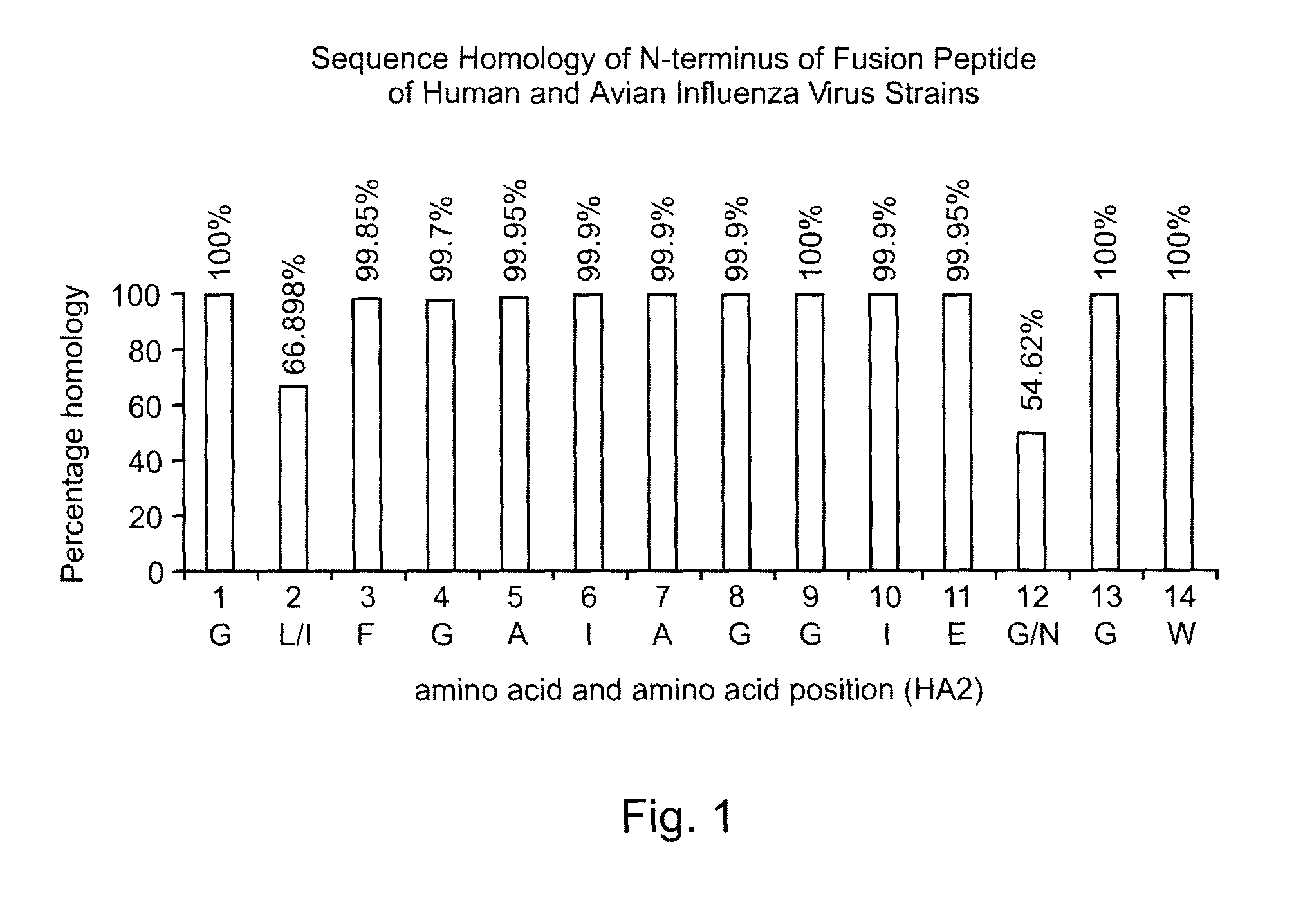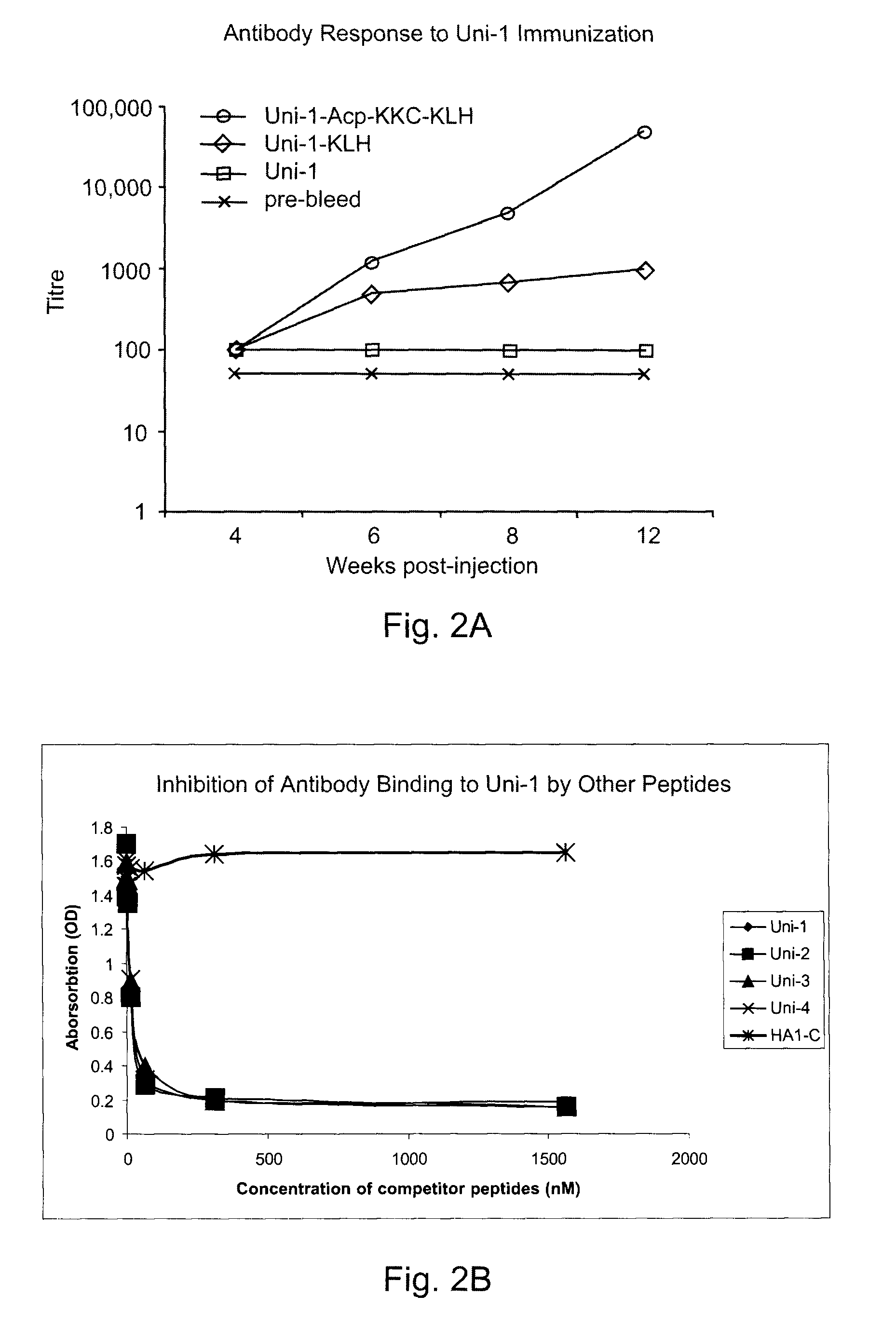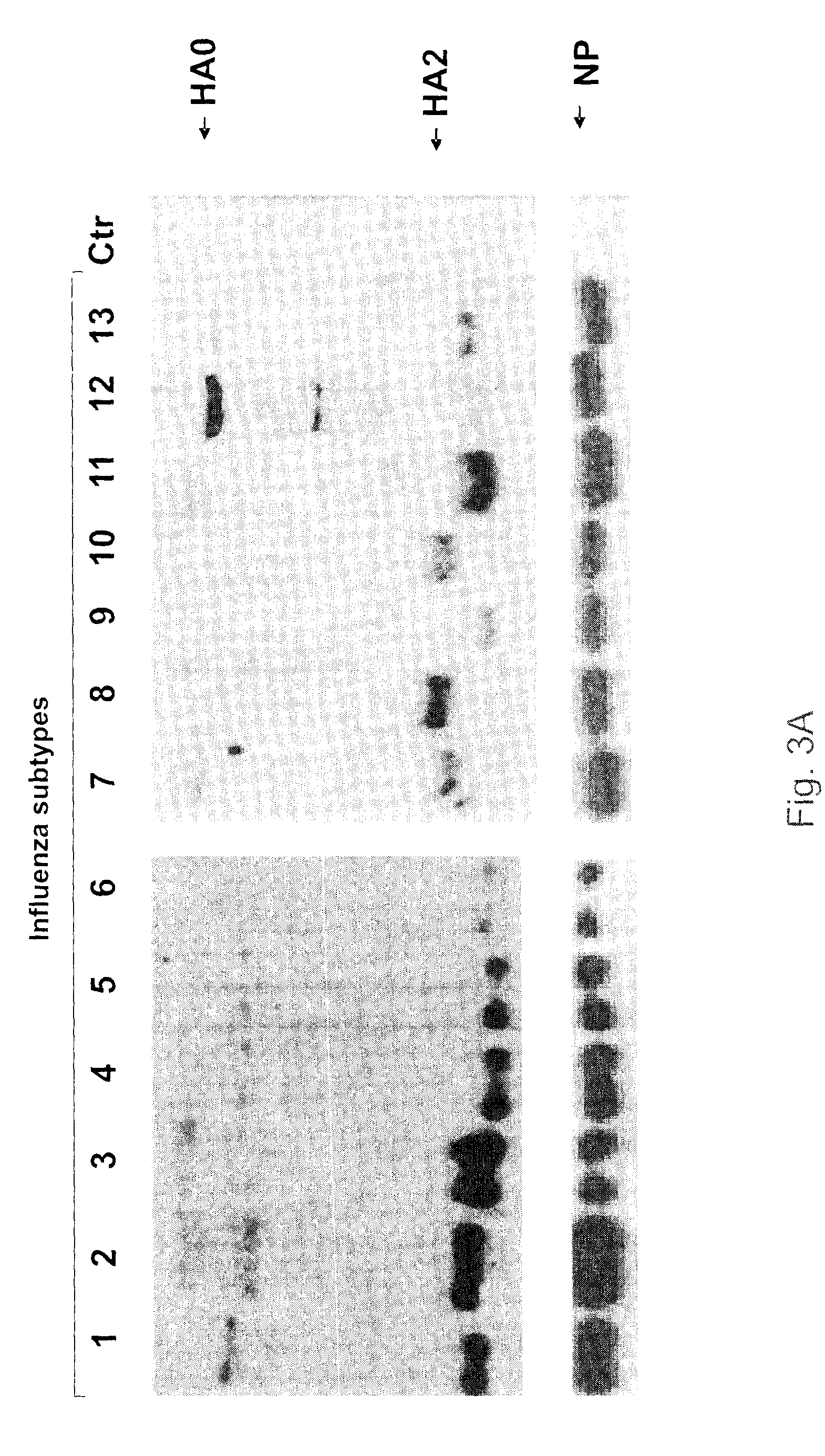Reagents and methods for detecting influenza virus proteins
a technology of influenza virus and reagents, which is applied in the field of reagents and methods for detecting influenza virus proteins, can solve the problems of uncertainty of actuality, the need for annual updating of the manufacturing process and preparation of reagents, and the reduction of the efficacy of seasonal influenza vaccines
- Summary
- Abstract
- Description
- Claims
- Application Information
AI Technical Summary
Benefits of technology
Problems solved by technology
Method used
Image
Examples
Embodiment Construction
[0028]Antigenic drifting and shifting of the influenza A viruses have presented to the scientific community a daunting challenge in terms of epidemiological monitoring, vaccine development and quality control. We have now generated and characterized antibodies against the most conserved region (fusion peptide) in the hemagglutinins of influenza A viruses. Bioinformatics analyses of all available hemagglutinin (HA) sequences from public domain revealed a stretch of 14 amino acids comprised of G [L / I] FGAIAGFIE[G / N]GW (SEQ ID NO: 6), which are neutral and / or non-polar except the glutamic acid (E) which is acidic and polar. This region, starting at the N-terminus of HA2, was found to be universally present in all viral strains with minor substitutions.
[0029]To overcome the weak immunogenicity and insolubility of the peptide, we linked the peptide to 6-aminocaproic acid, followed by the addition of a charged tripeptide (KKC) before its conjugation to the carrier protein KLH (keyhole lim...
PUM
| Property | Measurement | Unit |
|---|---|---|
| pH | aaaaa | aaaaa |
| temperature | aaaaa | aaaaa |
| concentration | aaaaa | aaaaa |
Abstract
Description
Claims
Application Information
 Login to View More
Login to View More - R&D
- Intellectual Property
- Life Sciences
- Materials
- Tech Scout
- Unparalleled Data Quality
- Higher Quality Content
- 60% Fewer Hallucinations
Browse by: Latest US Patents, China's latest patents, Technical Efficacy Thesaurus, Application Domain, Technology Topic, Popular Technical Reports.
© 2025 PatSnap. All rights reserved.Legal|Privacy policy|Modern Slavery Act Transparency Statement|Sitemap|About US| Contact US: help@patsnap.com



